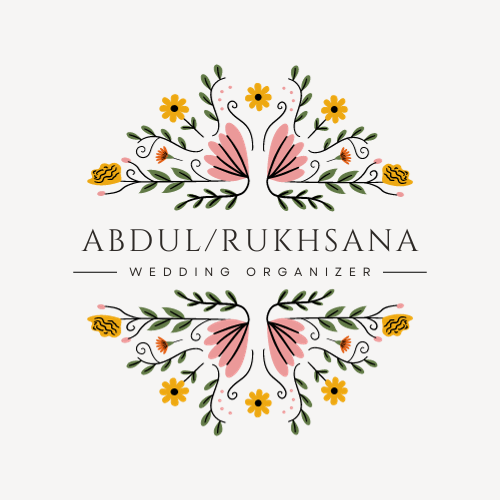
Islamic Marriage Certificate and Legal Documentation
Services offered for Muslim marriages can vary depending on cultural and regional differences, but there are several common services that are typically provided to facilitate and celebrate Muslim marriages.
It's important to note that the specific services offered may vary depending on the cultural and regional context, as well as the preferences of the individuals involved. Additionally, the level of religious adherence and cultural traditions can influence the selection of services for a Muslim marriage.
In Islam, a marriage certificate and legal documentation are essential for the recognition of a marriage by civil authorities. The specifics of the documentation may vary from one country to another, but the following is a general description of the process and the components typically involved:
1. Marriage License Application:
Couples usually start by applying for a marriage license at their local civil registration office. The application often requires both parties to provide identification and personal information, such as full names, addresses, dates of birth, and other relevant details.
2. Legal Age and Consent:
Both parties must meet the legal age for marriage in their country (which may vary). Additionally, their consent to marry should be freely given.
3. Witnesses:
Most jurisdictions require witnesses to be present during the marriage ceremony and to sign the marriage certificate. The number of witnesses may vary by location.
4. Marriage Ceremony:
The Islamic marriage ceremony (Nikah) is conducted with the presence of an officiant, often an Imam or a religious authority. During this ceremony, the couple verbally consents to marriage, and the terms and conditions of the marriage are outlined, typically in the presence of witnesses.
5. Marriage Certificate:
A marriage certificate is an official document issued by civil authorities after the marriage ceremony. It contains details such as the names of the couple, the date and location of the marriage, and the names of witnesses and the officiant.
6. Religious Documentation:
In addition to the civil marriage certificate, couples may also have religious documentation related to their Islamic marriage, such as a Nikahnama (marriage contract). This contract outlines the rights and responsibilities of the spouses according to Islamic law and is often signed during the Nikah ceremony.
7. Registration of Marriage:
After the marriage ceremony, the officiant, witnesses, and the couple must ensure that the marriage certificate is properly signed and documented. This may involve completing forms or submitting necessary paperwork to the civil registration office.
8. Filing and Submission:
The completed marriage certificate and any required documents are submitted to the civil authorities responsible for registering marriages. This is usually done within a specified period after the marriage ceremony.
9. Civil Registration:
The civil registration office reviews the submitted documents and officially registers the marriage. Once registered, the marriage is legally recognized.
10. Issuance of Marriage Certificate:
After the registration process is complete, the civil authorities issue an official marriage certificate to the couple. This document serves as legal proof of their marriage and is often required for various legal and administrative purposes, such as changing names, immigration applications, or inheritance matters.
It’s important to note that the specific requirements and procedures for obtaining a marriage certificate and legal documentation may vary by country and jurisdiction. Couples should consult with their local civil authorities to ensure they comply with all legal requirements for a recognized marriage. Additionally, some Muslim couples choose to have both a civil marriage and a religious marriage, each with its respective documentation, to ensure compliance with both civil and Islamic laws.
